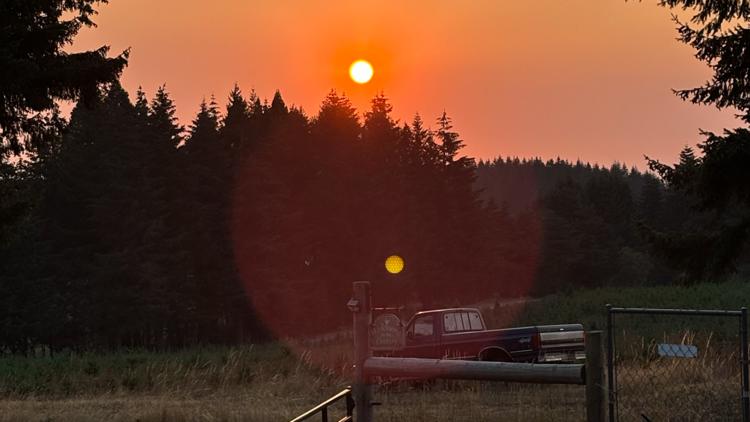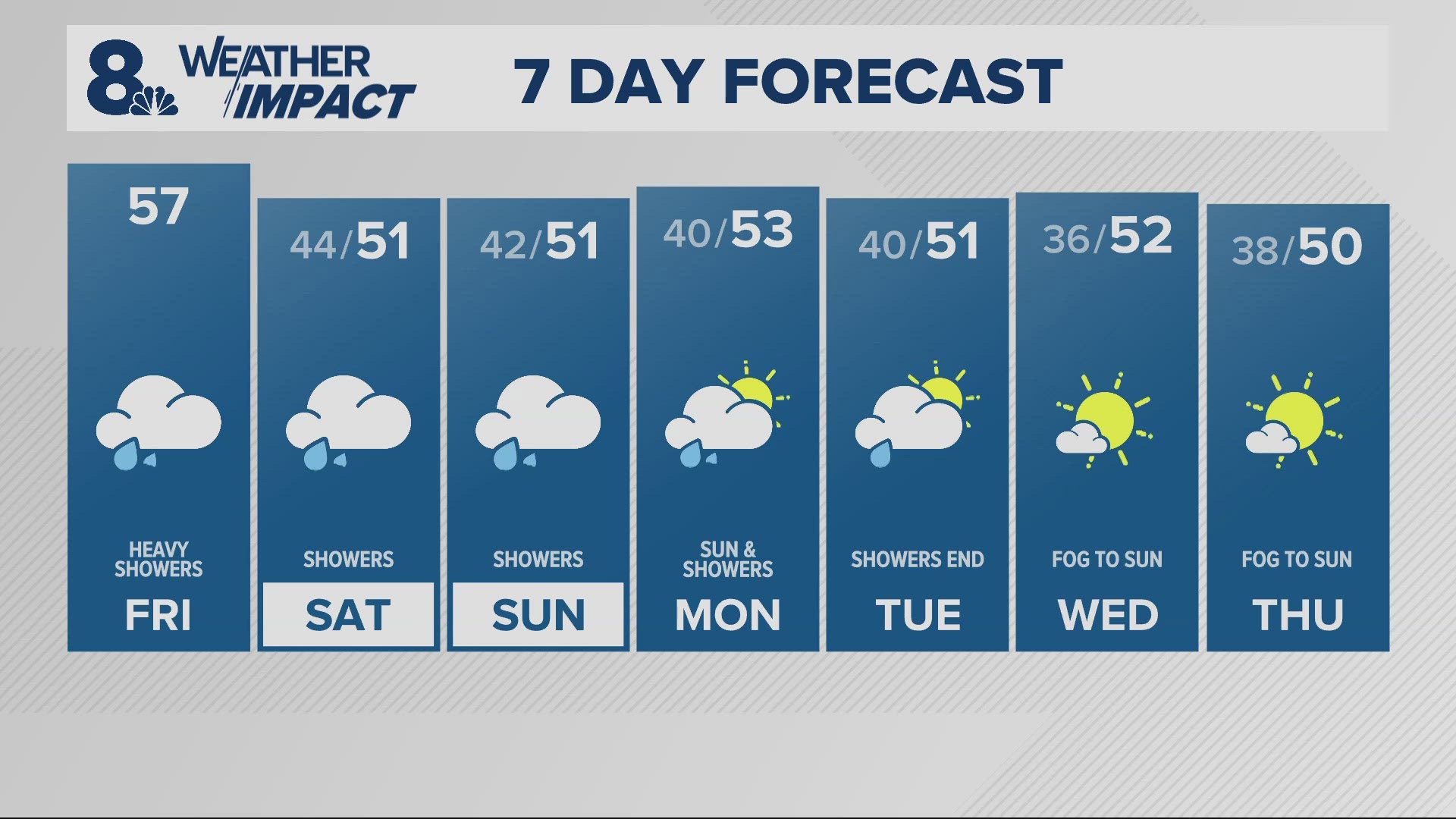PORTLAND, Ore. — The heat wave hitting the Portland metro area isn't only bringing hot temperatures this week but also hazy skies. You may have also noticed more intense, red and orange sunrises and sunsets.
That's because the hot weather has caused existing wildfires to become more active across the Pacific Northwest, creating more smoke in the sky and making the sun look redder, according to KGW meteorologist Rod Hill.
"The hot weather pattern has backed wind patterns from west to east, allowing wildfire smoke to migrate westward over the Cascades and into the valley," Hill said.
Last month, the cooler weather pattern came with a west wind, which generally held smoke east of the Cascade Mountains.
"The increased haze and smoke produced an orange sunrise this morning as sunlight is scattered by the extra particulates furnished by wildfire smoke," Hill said on Thursday.
The National Weather Service (NWS) shared a video on Thursday showing large plumes of smoke coming from wildfires in eastern Lane and Douglas counties.
The NWS has issued an Excessive Heat Warning through Friday night. The four-day heat wave started on Wednesday and is expected to go through Saturday. Portland saw a high of 91 degrees on Wednesday. Temperatures reached 102 degrees on Thursday, which is the latest in the year that Portland has hit the 100-degree mark. Portland is forecasted to reach 98 degrees on Friday. Saturday will dip into the low 90s before dropping into the 80s on Sunday.
Air Quality Alert
The NWS also has an Air Quality Alert in place through Friday for rising ozone levels in the lower atmosphere. Air quality may worsen as wildfire smoke and haze increases.
Air quality in Portland remained in the yellow or "moderate" level early Friday morning, but was nearing the orange level, which means some people who are sensitive to air pollution may experience health effects.
To check the air quality in your area, go to the DEQ's Air Quality Index website. In the search box, type in your city, state or ZIP code. You can also use the interactive air quality map.



